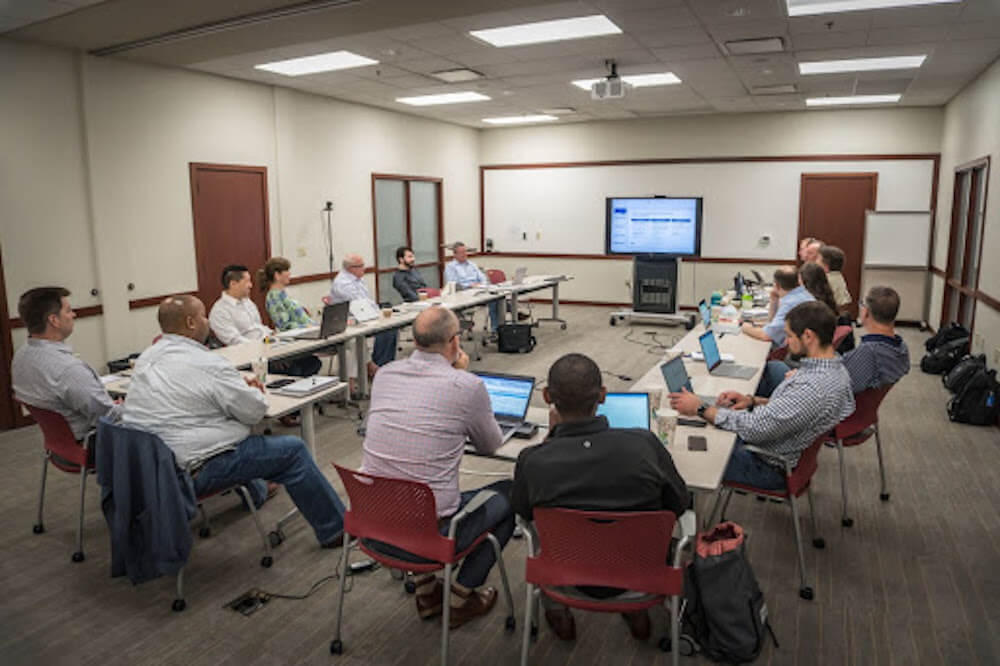Setting Yourself Up For Success
The average business spends around 24 days in the hiring process. However, only 30% of companies are able to operate at this speed and usually take a few months to fill a position. While it is important to find the right candidate, spending more time in this labor-intensive process ends up costing unnecessary time and money. Here is a comprehensive guide to making the hiring process more efficient to save your business critical resources.
Making A Good Impression
There are several crucial factors that can affect your impression on potential hires. These include things like brand presence and personality, marketing, and review management, amongst other things:
- Brand personality: Making sure that your company is one that people want to work for is the best way to attract and retain employees. Since you want your employees to be excited about representing your company, having a presence that creates enthusiasm is vital.
- Embracing digital trends: You’ve heard it before, but we’ll say it again: we live in a digital world. This means that your first impression on potential employees will most likely be made in a digital space. Whether it be your social media profiles, your website, or a job listing found online, putting your best foot forward as a company can greatly increase your recruitment potential. Not to mention, it helps to have a strong brand personality that transfers to digital spaces.
- Be clear in job descriptions: The final step most applicants take before submitting their physical application is reading specific job descriptions for their position. If you are a company posting on a job search website such as LinkedIn, Glassdoor, or Indeed, making sure that your job description is written in a way that is easily understood, specific, and includes any information the applicant may need to know can greatly increase your chances of receiving qualified candidates.
- Keep an eye on those reviews: This point ties into the one above. Individuals who are going through the job search process will often read reviews of the companies they are considering applying to in order to get a better understanding of not only the environment, but the care that is taken doing whatever it is that you do. If reviews are overwhelmingly negative (and no time is taken to respond and sort out the situation), this could detract potential applicants.
Streamline Interviews
While groups often produce better results than a single person can, when it comes to interviews, more heads are not always better. By eliminating unnecessary decision-makers, hiring managers can focus on an applicant’s qualities and personality while avoiding clouded judgment. A great way to learn more about an interviewee is to shift the conversation’s focus on soft skills and personality traits that are relevant to the position. Technical skills can always be acquired, but personalities cannot change. It is also helpful to give applicants a chance to interview the interviewers so they can gain an honest understanding of what working for the company looks and feels like. Additionally, it is helpful for hiring managers to check references earlier in the process instead of waiting until a decision is close to being made.
Don’t Forget The Referrals
One of the most overlooked resources is already in the office. Current employees have a full understanding of company culture and the demands of individual positions. To incentivize referrals, many businesses find it helpful to offer bonus or gift incentives to motivate employee participation in the referral program. It is also critical to avoid biases that interfere with the hiring process as little as much as possible. Some ways businesses have avoided biases are:
- Blind hiring: This involves removing any personal information that is irrelevant to the job description.
- Assessments: Assigning candidates to relevant tasks will provide hiring managers with a clear example of their skills.
- Standardize interviews and the hiring process: Ensuring all hiring managers are trained on the same methods eliminates room for potentially hiring unprepared candidates.
Using these methods for recruiting can significantly boost both your application and retention rates for employees. For more information or employer resources, check out the Temple EDC Employer Toolkit.


